The Multi-Apping Dilemma: Safety and Earnings among Tanzanian Platform Workers
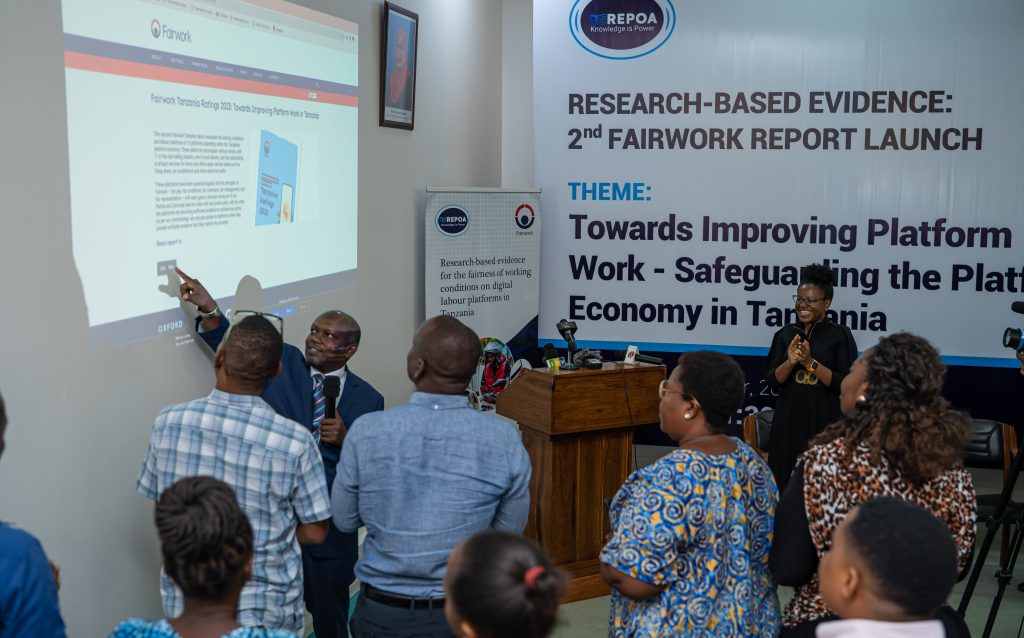
The safety risks of prolonged working hours in Tanzania’s platform economy are not thoroughly examined. This policy brief highlights the rise of multi-apping among Tanzanian platform workers and its impact on earnings and safety. It explores the trade-off between increased income prospects and safety risks. The brief offers stakeholders—including policymakers, platform operators, and worker associations—actionable […]
REGULATORY IMPACT ASSESSMENT: The Monetary Cost of Complying with Employment Regulations: Experience from the Hotel Industry in Tanzania
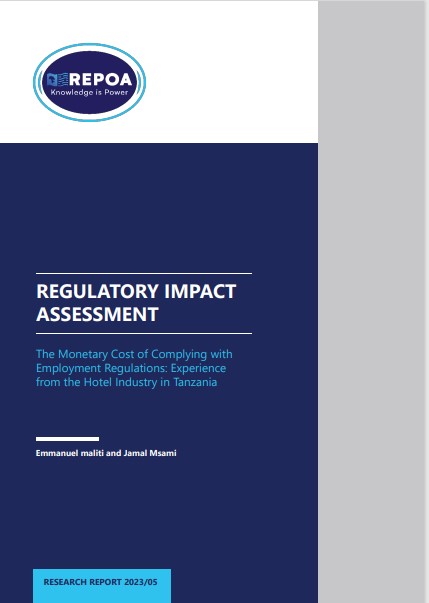
This Regulatory Impact Assessment (RIA) is a result of joint efforts between REPOA and the Hotel Association of Tanzania (HAT). The RIA quantifies the cost that tourism business operators, in particularly the accommodation businesses, incur when complying with the existing employment regulatory regime. The RIA primarily responds to the following questions: How much compliance costs […]
Building productive capacities – opportunities and constraints in the cashew nut sub-sector

This policy brief provides a framework of analysis on building productive capacities in Tanzania – regarding opportunities and constraints in the cashew nut sub-sector. This brief seeks to inform policy analysts, private sector practitioners, and decision makers in the public institutions responsible for promoting economic growth, industrial development, investments, trade expansion, private sector development, and […]
The impact of COVID-19 pandemic on the educational inequalities in Tanzania

This Policy Brief is a result of a country-specific study conducted by REPOA in collaboration with the Southern Voice, to investigate the impact of COVID-19 on the educational inequalities in the pre- during and post-COVID-19 periods focusing on the primary student’s enrolment and learning behaviour, teacher’s engagement, and the application of ICT. The study covered […]
A Review of Tanzania’s Fiscal Regime for Climate Action
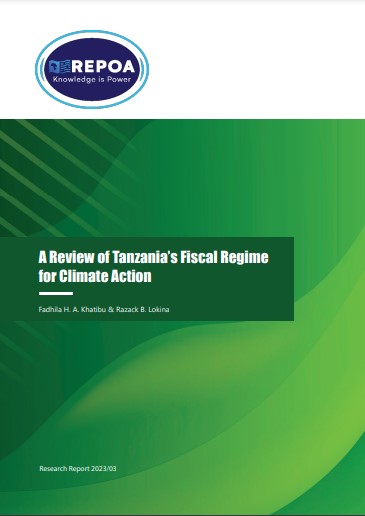
Objective of this report is to develop optimal levels of taxes, levies, and subsidies as domestic financial resources to achieve the targets under the FYDP III and NDC emission reduction targets. This includes an assessment of the potential of using taxes, levies, and subsidies for climate action (compared with the climate tax regimes of other […]
Building productive capacities – opportunities and constraints in the tea sub-sector

This policy brief provides a framework of analysis on building productive capacities in Tanzania – regarding opportunities and constraints in the tea sub-sector. This brief seeks to inform policy analysts, private sector practitioners, and decision makers in the public institutions responsible for promoting economic growth, industrial development, investments, trade expansion, private sector development, and providing […]
Assessment of Firm Level Drivers of Productivity and Competitiveness in the Tanzania Enterprise Sector
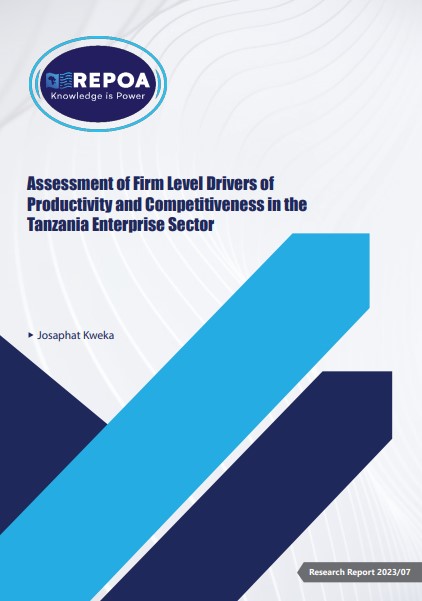
As noted in the third Five-Year Development Plan (URT, 2021), the enterprise sector in Tanzania is constrained by several challenges including: pervasive informality, weak legal and regulatory framework and unfavourable business environment which confounds key functional features of private sector operations such as enhancing the registration of property, easing access to credit, protecting minority investors, […]
Public Perceptions of COVID 19 Vaccine Efficacy among Urban Dwellers in Tanzania – A Case of Temeke Municipal
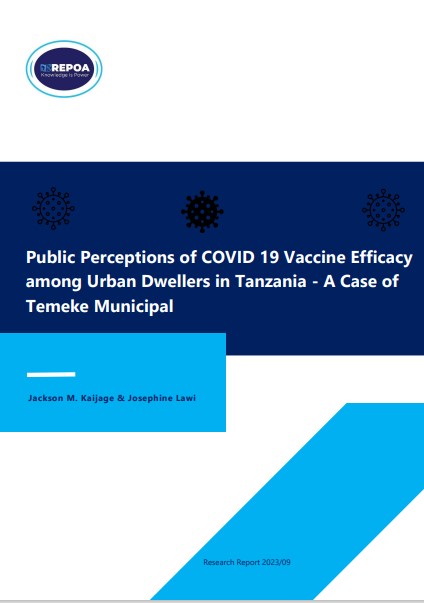
This study focuses on public perceptions of the efficacy of COVID-19 vaccines, among Tanzanians living in urban areas. Specifically, the study examined people’s understanding of the COVID-19 pandemic, perceptions of people towards COVID-19 vaccination, socio-economic disparities in COVID-19 vaccine preferences, and mechanisms of coping with the COVID-19 pandemic. Results show that COVID-19-related concerns seemed to […]
Factors for Crop Insurance Uptake among Smallholder Maize Farmers: A Case Study of Njombe Region in Tanzania
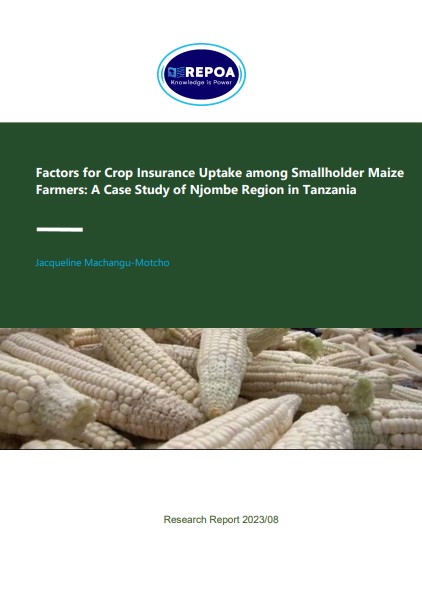
The aim of this study was to examine various factors that determine small-holder farmers’ decisions towards adopting crop insurance schemes in their agricultural production activities. Based on the study’s results, there was a strong correlation between independent variables such as land ownership, size, on-farm revenue, farmer organisations or groups, marital status (single) and years of […]
Biomass briquettes production handbook
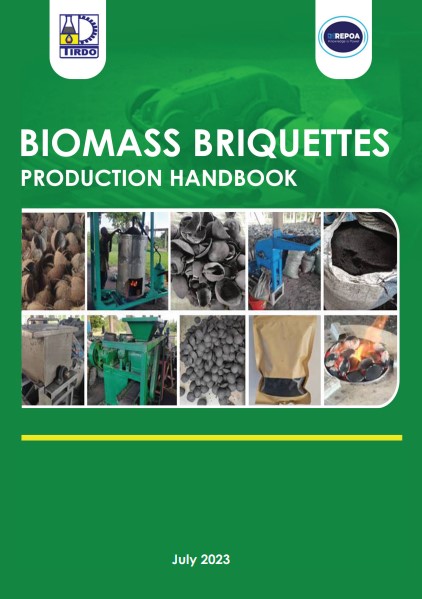
This handbook has been prepared as part of a project implemented by Tanzania Industrial Research and Development Organization (TIRDO) and REPOA in effort to address climate damage caused by uncontrolled cutting of trees for firewood and charcoal production. Tanzania has not fully addressed the issue of climate effects resulting from dependence on biomass (firewood and […]
Status of the Transition to a Nature-Positive Green Economy in Tanzania
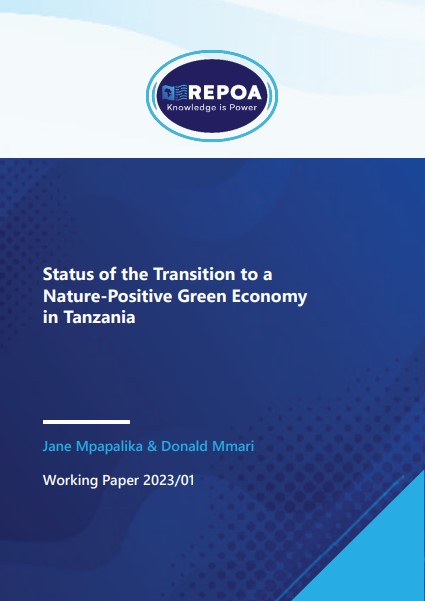
REPOA would like to extend its sincere gratitude for the financial support provided by the Green Economy Coalition (GEC) secretariat in London through ACODE to develop this working paper. The work presented in this paper has been funded by the MAVA Foundation through the Economics for Nature (E4N) programme. This paper assesses the status of […]
Factors Influencing Women’s Ability to Control their Income: The Case of Tanzania
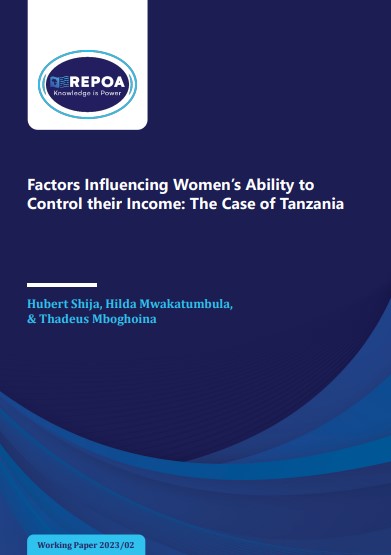
There are conflicting research findings on women’s empowerment because of different methods and populations. Some scholars discovered that over time women’s income control has increased, while others have not found any increase. To shed more light on the phenomenon, this research examines the extent and predictors of women’s independence on making spending decisions whilst living […]
Building productive capacities in Tanzania – opportunities and constraints in the coffee sub-sector

This policy brief provides a framework of analysis on building productive capacities in Tanzania – regarding opportunities and constraints in the coffee sub-sector. This brief seeks to inform policy analysts, private sector practitioners, and decision makers in public institutions responsible for promoting economic growth; agriculture and cooperative development; investments, trade, and industrial development; private sector […]
Harnessing the global opportunities for enhancing productive capacities in Tanzania
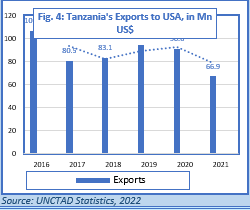
This policy brief provides a framework of analysis regarding harnessing the global opportunities for enhancing productive capacities in Tanzania. It seeks to inform policy analysts, private sector practitioners, and decision makers in public institutions responsible for promoting economic growth, industrial development, investments, trade expansion, and private sector development. It is the ability these actors to […]
Harnessing the continental opportunities for enhancing productive capacities in Tanzania
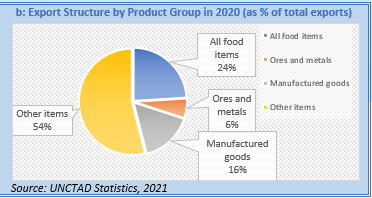
This policy brief provides a framework of analysis regarding harnessing the continental opportunities for enhancing productive capacities in Tanzania. It seeks to inform policy analysts, private sector practitioners, and decision makers in public institutions responsible for promoting economic growth, industrial development, investments, trade expansion, and private sector development. It is the ability these actors to […]
Participation in regional and global value chains can enhance productive capacity for industrial and trade expansion
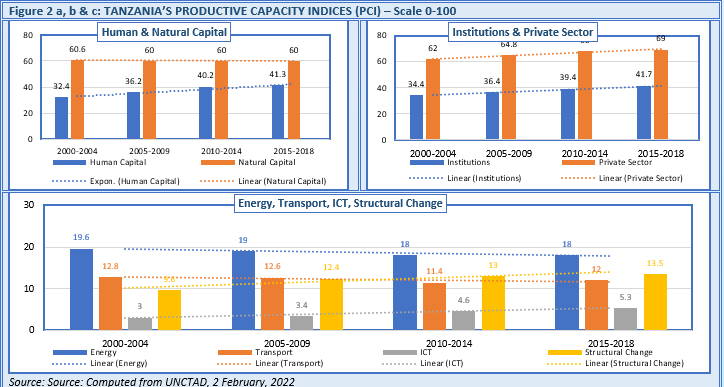
This policy brief provides a framework of analysis regarding the participation in regional and global value chains to enhance productive capacity for industrial and trade expansion. It seeks to inform policy analysts, private sector practitioners, and decision makers in public institutions responsible for promoting economic growth, industrial development, investments, trade expansion, and private sector development. […]